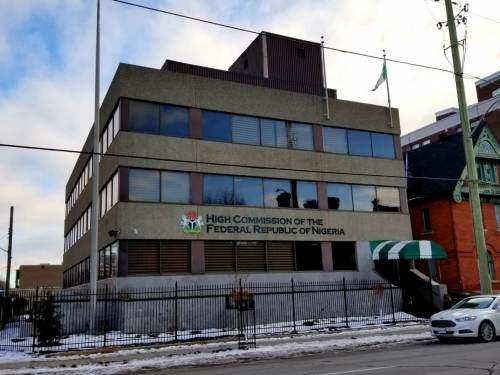The Nigerian High Commission in Ottawa, Canada has announced an indefinite suspension of its activities. The commission also said the special interven
The Nigerian High Commission in Ottawa, Canada has announced an indefinite suspension of its activities. The commission also said the special intervention arrangement for emergency cases “on discretionary basis” has been suspended.
The commission said it had devised a system in which citizens with emergency cases were attended to strictly by appointment that allowed a limited number of people into the chancery at a time — in compliance with the laid-down rules of physical distancing.
But it said some citizens chose to abuse the system by showing up without an appointment. It also accused citizens of acting in an unruly manner and disturbing the peace at the chancery. It said the situation came to a head on August 14, when a group showed up at the high commission and refused to allow embassy staff members to attend to those who had appointments. It alleged that a female staff member was held hostage and subjected to physical abuse.
“This kind of conduct is considered unnecessarily hostile and totally unacceptable and no embassy would tolerate conduct that puts the lives of its staff members at risk. We are closing down the embassy and we shall be considering ways to make our premises more secure and less susceptible to unruly behaviour and violent mob action,” it said.
It also said the closure of the air space has impaired the transportation of passport booklets into the country.
“For individuals trying to renew work and study permits, the commission asked them to apply for renewals online. At the appropriate time, applicants would be asked to submit appropriate documentation,” the commission said.
“If you do not have a valid passport when this happens you may ask for a 90 day grace period which would be granted. Nigerian citizens whose study or work permits have expired since March 2020 and who do not have a valid passport have a grace period that lasts until December 31st 2020. By this time we expect to have resolved some of the challenging issues that COVID-19 has created.”
